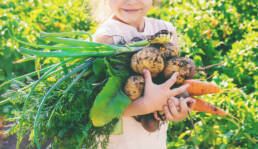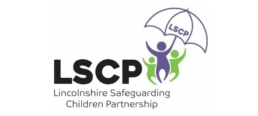Eating well, at any age, is really important towards achieving good health and wellbeing. Growing children need lots of energy (calories) and nutrients, such as protein, fat, vitamins, carbohydrates and minerals.
Children beginning their journey with us, in our Baby Room, will start eating their first food at around 6 months. The eating patterns established and embedded during a child’s early years influences their health throughout both childhood and adulthood, so it is really important to get it right.
Poor diets, at this critical time of a child’s early years, may lead to deficiencies in essential nutrients, such as vitamin A which is vital to a child’s health and their immune function. Vitamin A also helps their heart, lungs and other organs work properly. Recent experience has shown how important a good immune system can be to sustaining good health and it starts from day one. What, when and how children eat is more important before the age of 2, then any other time of their lives.
At Bramble Hall we have developed a set of menus for both summer and winter. These six-month periods are then expanded into a different menu each week on a ‘rolling’ 4 week cycle throughout the six months. During their meals and snacks the children are given time to eat at their own pace as they assess their appetite to stop when they feel full. Our meals and snacks take place at the same time each day as part of the children’s daily routines. Water and milk are available throughout the day.
“Good nutrition is an investment in the health of every child”.
Our menus have been developed with the following 4 food groups included on a daily basis to offer both tasty and nutritious food.
- Starchy carbohydrates such as wholemeal bread, crumpets, pancakes, crackers, potatoes, pasta, rice, noodles, and breakfast cereals but none with added sugar, honey or chocolate (Vitamin B and fibre).
- Fruit and vegetables that may be fresh, frozen or canned plus, brassica and leafy green plants. We also include all types of salad, mushrooms and now turnips! (Vitamin C, iron and fibre).
- Dairy and alternatives include milk (both from cows and oats) cheese and yoghurt (Vitamin A, D plus calcium, protein and fat).
- Beans, pulses, fish, eggs, kidney beans, chicken, turkey and red meat once a week. Chicken nuggets, sausages, burgers and other processed meats are also only served once a week (Iron and Zinc)
Of course, we also take great care to maintain our standards of hygiene and food preparation.

Allergies – we have protocols in place, accessible to all members of staff, that ensureseveryone is aware of individual children’s allergies, intolerances and preferences.
“We take care, to take care”.
CARBOHYDRATES…the good, the bad and the ugly
Eat for Life:
Everyone, especially growing children, rely on carbs for many important natural functions including producing energy, hormone regulation and as an essential source of nutrients.
Carbohydrates provide the energy that fuels children’s metabolism, supports growth, keeps their brain and nervous system working. Carbs are a macronutrient, containing sugar, starch and fibre, which essentially means they are required in large amounts to maintain health and wellness at every stage of life. They are essential for phytonutrients which help maintain the body’s immune system.
Glucose, absorbed through eating good carbs, is virtually the only fuel the brain needs. Research indicates a minimum intake of up to 125 grams of carbs per day for children. Anything less may lead to the brain being short of ‘fuel’ to perform at its best. This could impact by reducing their concentration, their ability to focus, their learning capacity and their long-term memory.
Dietary Fibre:
Fibre included in the daily intake of total carbohydrates, but also has separate guidelines to ensure children get an adequate amount. At around 6 months old, babies begin eating complementary foods, such as baby cereal, vegetables, and legumes, that contain fibre. These foods are introduced very gradually for most babies such that by year 1 their intake is ideally about 5 grams of fibre.
Our nursery menus are developed to maximise the presentation of ‘Good Carbs’ and minimise the offer of ‘Bad Carbs’ as well as increasing the intake of fibre.
Good Carbs:
Fresh fruit, fresh veg, beans, lentils, peas, spinach, brown rice, oats, sweet potatoes, almonds, walnuts, whole grains, quinoa, pumpkin, squash, beets, zucchini, celery.
Phytonutrients are powerful antioxidants and are essential for keeping everyone alive. Elements of these phytonutrients prevent cell damage throughout the body as an autonomous defence – nature’s way to protect us. Eating regular amounts of broccoli, berries, pears, turnips, celery, carrots and spinach and the delivery of phytonutrients is generally beneficial to our immune system.
Bad Carbs:
All fruit juices, fizzy drinks, cookies, biscuits, crackers, pastries, cakes, white bread, desserts, ice-cream, chocolate, cereals and chips.
‘Simple’ carbs (Bad) convert to sugar much faster in the body and cause spikes in blood sugar. This will have greater impact on small children than adults and often lead to more boisterous behaviour. After the highs there are the lows when children are less motivated and sometimes less patient with other children. You know this impacts their positive learning experiences and can lead to inconsistent behaviour.
‘Processed’ carbs (Bad), such as pastries, biscuits etc, convert to sugar and spike blood sugar levels. Sadly, they are often devoid/stripped of any nutritional value, no matter how good they taste. They also have an ever-worsening impact on the mind as dopamine, that produces the ‘high’, becomes a need and not a necessity. The general feeling is that they are ‘treats’ but regrettably they are the exact opposite. They can lead to serious and debilitating illnesses and a loss of self-esteem.
‘Complex’ carbs (Good) break down much more slowly in the body, allowing a more gradual release of energy. This type of carb also contains fibre and other important vitamins, minerals and phytonutrients.
If you would like any more information, please do not hesitate to ask the nursery manager.

Nicole Hallam
Manager, Bramble Hall Day Nursery









